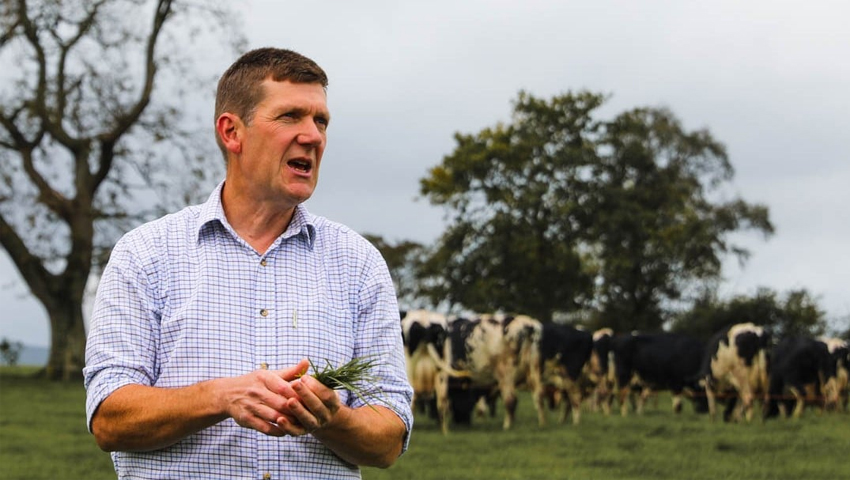NESTLÉ Professional has reinforced its commitment to sustainable practices welcoming twelve key customers to a dairy farm in Cumbria which supplies them with fresh milk to discuss regenerative agriculture’s place in the future of farming.
The visit, which pre-launched Nestlé Professional’s “Is Regenerative the Future of Farming?” report, brought together contract caterers, farmers, managers of responsible sourcing and sustainability leaders.
Nestlé’s “Milk Plan” supports regenerative dairy farming in a partnership with First Milk co-op, to reduce the environmental impact by improving the sustainability and efficiency of the supply chain. Each farmer receives a “sustainability bonus” for taking practical measures that protect and enhance natural assets on their land.
Katya Simmons, Managing Director at Nestlé Professional UK & Ireland, said, “Regenerative agriculture plays a key part of the solution as we seek to build long-term food resilience and security.
“We want to positively impact ecosystems, farmers, the environment and society, so our aim is to source 20% of key ingredients through regenerative agriculture methods by 2025 and 50% by 2030. Regenerative agriculture has huge potential to improve soil health and fertility, sequestering carbon, protecting water resources, and safeguarding biodiversity. This can improve the resilience of farms and yields in the face of extreme weather, making an important contribution to the livelihoods and health of communities, as well as our planet.”
Attendees enjoyed a tour of the farm seeing some of the solutions put in place at the farm: rotational grazing, mimicking nature to allow the cows to keep moving; digging up the earth to count earthworms, demonstrating improved soil health and the planting of hedgerows to act as a nature highways.
The day was concluded with a panel Q&A, which included Robin Sundaram, responsible sourcing manager at Nestlé UK & Ireland, Lee Truelove, responsible sourcing manager at First Milk, Robert Craig, vice chairman of First Milk, Richard Messenger, a farmer from Howes Farm, Cumbria, and Julie Owst, the head of sustainability at Bidfood.
Through the Q&A the panel discussed a number of topics linked to the new report “Is Regenerative the Future of Farming”, including what regenerative farming means to consumers, its impact on climate change and the role of policy. Summarising its purpose, Sundaram said, “Climate change is one of the biggest threats to society and we are using our size, scale and reach to tackle climate change as part of our net zero roadmap.”
In an introduction to the panel, Nick Hughes, the associate editor of Footprint Intelligence said, “Corporate commitments to regenerative agriculture can help build food system resilience – agriculture is in the unenviable position of being a source of greenhouse gas emissions, and highly vulnerable to the effects of climate change.
“Regenerative agriculture is not easily pigeon-holed but its philosophical essence is the mirror of extractive farming. Rather than creating external costs, you’re putting more back in to the land and society than you’re taking out.
“Regenerative agriculture should be context specific and farmer-led. No two farms are identical and regen ag does not set out to prescribe a set of practices that must be followed. It’s about working within a farm’s biological, chemical, physical and ecological limits.”
